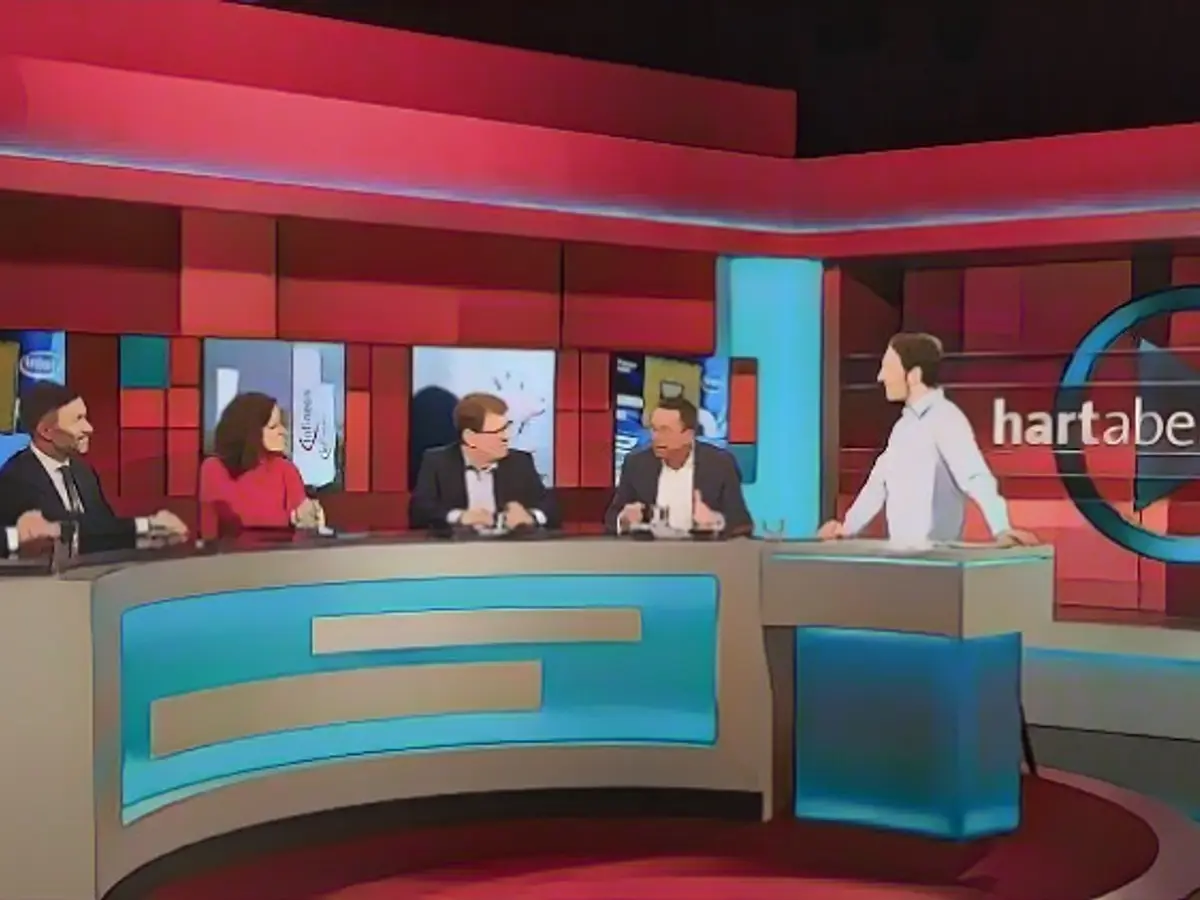Brinkhaus: "Take the panic out a little"
Following the ruling of the Federal Constitutional Court, there is a huge gap in the federal government's budget. In the ARD talk show "Hart aber fair", the guests discuss how the budget gap could be plugged.
Citizens, politicians and businesses have been waiting a long time for this. When the Bundestag convenes today, Tuesday, there is only one item on the agenda: the budget gap created by the ruling of the Federal Constitutional Court. Chancellor Olaf Scholz will first make a government statement, then there will be a debate. In the ARD talk show "Hart aber fair", the guests have anticipated the discussion a little. For example, on the debt brake, which is to be retroactively suspended this year.
"I understand that this raises questions," says deputy FDP parliamentary group leader Konstantin Kuhle, "because the debt brake is an important part of our financial constitution." Politicians must be measured against this every year. The debt brake should now be suspended for the entire current financial year, which ends in a few weeks. "Anyone who doesn't believe that we had an emergency situation in 2023 should go back to the beginning of this year and ask the hospitals or the many citizens who were very worried about whether they would make it through the winter," says Kuhle. SPD politician Ralf Stegner is also in favor of suspending the debt brake, which is intended for "normal times". But Germany has had to overcome various crises. Nobody would claim that these are normal times, emphasizes Stegner.
However, it is questionable whether the supplementary budget would really stand up before the Federal Constitutional Court. Journalist Henrike Rossbach from the "Süddeutsche Zeitung" is not so sure. However, she also notes that the judges in Karlsruhe would only deal with the issue if a lawsuit were filed against it. And this is where former CDU/CSU parliamentary group leader Ralph Brinkhaus has good news: "We will not sue." However, Brinkhaus and Kuhle are in favor of the debt brake having to take effect again next year.
An end to electricity and gas price brakes
A few days ago, Finance Minister Lindner announced that the electricity and gas price brakes would expire on January 1, in the middle of winter, when people do a lot of heating. Originally, it was not supposed to end until the beginning of March, i.e. when the cold days are as good as over. However, Konstantin Kuhle justifies the suspension of the measure, which was to be paid from the Climate and Transformation Fund (KTF) declared null and void by the Federal Constitutional Court, in his own way: "Because prices have stabilized on the energy markets." But that could change again. That's why Kuhle promises: "If the situation changes next year, then of course we will have to take action again." It is already important for the FDP politician that we can no longer afford everything and must set priorities.
For Wolfgang Weber from the German Electrical and Electronic Manufacturers' Association (ZVEI), these are clear: the companies he represents are now looking to invest in the future, he says. "The question is: How can this country manage the transformation? The industry is ready, but actually expects that what has been promised economically will now be kept." The economy is therefore continuing to rely on the support of the federal government.
This also applies to the companies that now want to set up operations in eastern Germany. Chip manufacturer Infineon, for example, wants to build a plant in Dresden - for a billion euros in subsidies from the federal government. WSMC, the world's largest chip manufacturer, is even to receive five billion euros in subsidies to set up a plant in Dresden. And the government even wants to make 10 billion euros available for the global giant Intel - for a plant in Magdeburg. But can the federal government still keep these promises? "I can't promise that today," said Kuhle on "Hart aber fair".
Discussion about citizen's income
All guests agreed that it was important to promote the economy, as this creates jobs and is an investment in the future. However, savings had to be made elsewhere. For example, Brinkhaus would like to reduce the citizen's income so that the difference to people who work would be greater. However, this is not feasible with the SPD. According to Ralf Stegner, the gap between the citizen's income and the minimum wage could also be increased by increasing wages overall.
Kuhle has even more ideas: He wants to save on subsidies and proposes a Europe-wide kerosene tax. He also wants to discuss raising the retirement age and wonders whether Ukrainian refugees should automatically receive citizens' benefits when they enter the country.
Whatever savings options there are in the end: Brinkhaus is optimistic: "A good finance minister and a good opposition will get it done." There will be both support measures and a constitutional budget next year. "It's not like a meteorite has somehow hit, we just have a few challenges." And a little later, he appeals: "We should take the panic out of it a little."
In the heated discussion about budget plugging strategies during the ARD talk show "Hart aber fair", Brinkhaus suggests that the panic should be alleviated a bit, implying a calmer approach to solving the budget gap. During the same show, Kuhle refers to the concern and panic experienced by many citizens and hospitals earlier in the year, highlighting the urgency of tackling the budget gap.
Source: www.ntv.de








